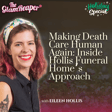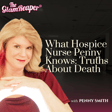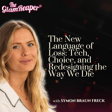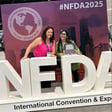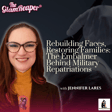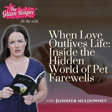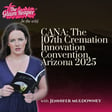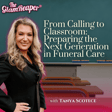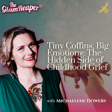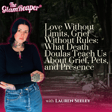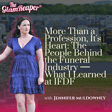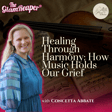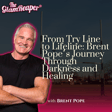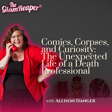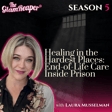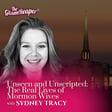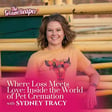
Letters, Loss, and the Love That Remains - How to Keep the Dead Close
What If We’ve Been Grieving All Wrong?
How do we truly honor the people we love after they’re gone?
In this deeply moving episode, Jen sits down with Lauren from La Mort to talk about what most people don’t know about death, grief, and connection. From the lost art of caring for our loved ones' bodies to the power of pen pals and handwritten letters, this conversation is full of stories that will make you reflect, feel, and maybe even rethink how we say goodbye.
They open up about the emotional toll of modern funerals, the frustration of navigating corporate death care, and the healing that comes from choice, education, and community. Whether you've lost someone, are supporting someone who has, or simply want to understand grief on a deeper level, this is the conversation you didn’t know you needed.
Key Topics:
-Reclaiming sacred death rituals
-The emotional impact of COVID on connection
-The power of tangible, embodied grief practices
-The importance of informed choice in death care
-Advocating for change and education in the funeral industry
Quotes from the episode:
"Taking care of our loved ones is not an easy task — death is a tangible thing."
-Lauren Carroll
“It’s the bad eggs that don’t want to innovate who give the whole industry a bad reputation.”
-Jennifer Muldowney
Timestamp:
[00:00] Podcast Intro
[01:02] Lauren shares how she moved from co-founding Deathwives to creating La Mort, a heartfelt collective that weaves together grief, art, and joy.
[08:16] Lauren and Jen laugh about their shared clumsiness and reflect on how the pandemic changed human connection. Lauren talks about the importance of simple, tangible rituals like writing letters, being together in person, and caring for a loved one’s body.
[18:38] The conversation turns to the power of giving families real choices around death care. Lauren and Jen explore how informed decisions can bring comfort and clarity in times of loss.
[25:32] Together, they call for more education and open-mindedness in the funeral world. They highlight how listening to families and embracing innovation can transform the way we honor life
and death.
[39:25] Outro
Connect with Lauren Carroll:
LinkedIn- linkedin.com/in/lauren-carroll-deathwives
Website - https://www.lamort.org/
Connect with Jennifer/The Glam Reaper on socials at:
Instagram - https://www.instagram.com/jennifermuldowney/
TikTok - https://www.tiktok.com/@therealglamreaper
YouTube - https://www.youtube.com/@TheGlamReaperMuldowney
LinkedIn - https://www.linkedin.com/in/jennifermuldowney/
Facebook Page - https://www.facebook.com/MuldowneyMemorials/
Email us - glamreaperpodcast@gmail.com
Shop Merch - https://the-glam-reaper.printify.me/products
Listen to The Glam Reaper Podcast on Apple Podcasts:
https://podcasts.apple.com/us/podcast/the-glam-reaper-podcast/id1572382989?i=1000525524145
The Glam Reaper® AMAZON Storefront - https://amzn.to/4hObpOh
